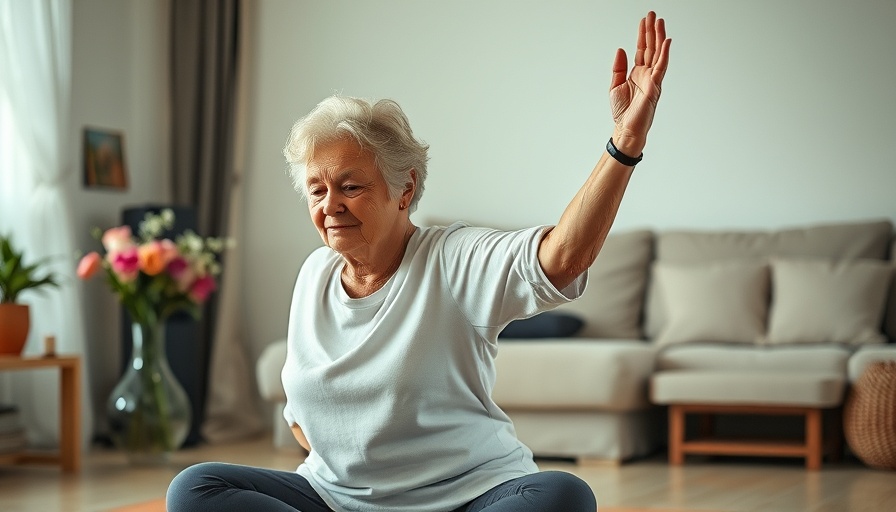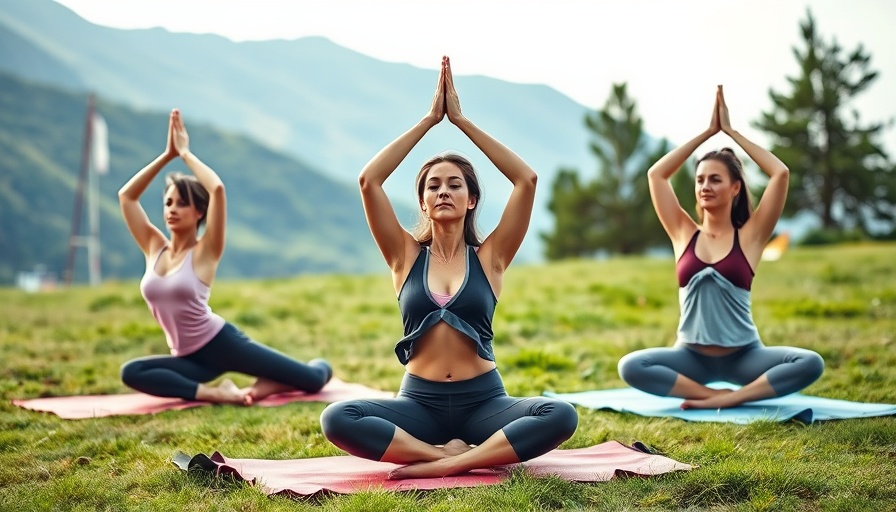
How Yoga Can Help Menopausal Women
Menopause can bring about a whirlwind of changes in a woman's body, including hot flashes, sleep disturbances, and emotional shifts. Many women are seeking alternatives to conventional treatments, and surprisingly found relief in practices like yoga. Recent systematic reviews evaluate how activities such as yoga, tai chi, and qigong can alleviate these menopausal symptoms.
A Look at the Evidence
The recent umbrella review conducted a thorough investigation into existing studies surrounding the impact of yoga on menopausal symptoms. The findings reveal that while yoga can yield some benefits, the results vary between different studies, showing only small to moderate improvements in symptoms like anxiety and hot flashes. Notably, no studies examined tai chi or qigong specifically related to menopause.
Emotional Well-Being: A Benefit for Mental Health
Yoga isn't just about physical well-being; it also emphasizes mental health. Many women experience anxiety and depression during menopause, and the review noted that yoga could help with these feelings. Engaging in regular yoga practice encourages a better mood and a more positive outlook on life. By promoting mindfulness, it allows women to connect with their bodies and emotions deeply, fostering resilience during this transitional phase.
Challenges and Limitations in Research
The strength of the evidence supporting yoga for menopausal symptoms is classified as low to moderate, indicating the need for further research. This limitation arises from inconsistent reporting in studies and the variability of yoga practices used. More rigorous clinical trials will be essential to determine the effectiveness of yoga and other complementary therapies for menopause.
The Safety of Yoga: A Low-Risk Option
Perhaps one of the more compelling aspects of yoga is its safety factor. Unlike many pharmacological treatments for menopause, yoga presents a low-risk and often enjoyable option that can be easily integrated into women’s daily lives. With instruction from a knowledgeable teacher, the practice can be adapted to accommodate individual needs, making it accessible to many women.
Including Yoga as Part of a Holistic Approach
While yoga may not be a cure-all solution for menopause, incorporating it into a broader health regimen can be beneficial. This includes nutritional changes, counseling, and other lifestyle adjustments that collectively contribute to improved health outcomes. Encouraging women to explore these avenues could foster greater agency in managing their health.
Conclusion: Embracing Yoga for Greater Well-Being
For women navigating the challenges of menopause, considering yoga as part of their wellness toolbox could be advantageous. With potential benefits for both the body and mind, yoga invites women to engage in a nurturing practice that promotes overall health and quality of life. As more research unfolds, the hope is that wellness practitioners can offer informed programs tailored specifically for this demographic, empowering women to embrace this stage of life with grace and strength.
To empower yourself further, consider exploring local yoga classes and connecting with practitioners who specialize in menopause and holistic wellness to enhance your practice and overall life satisfaction.
 Add Row
Add Row  Add
Add 




Write A Comment